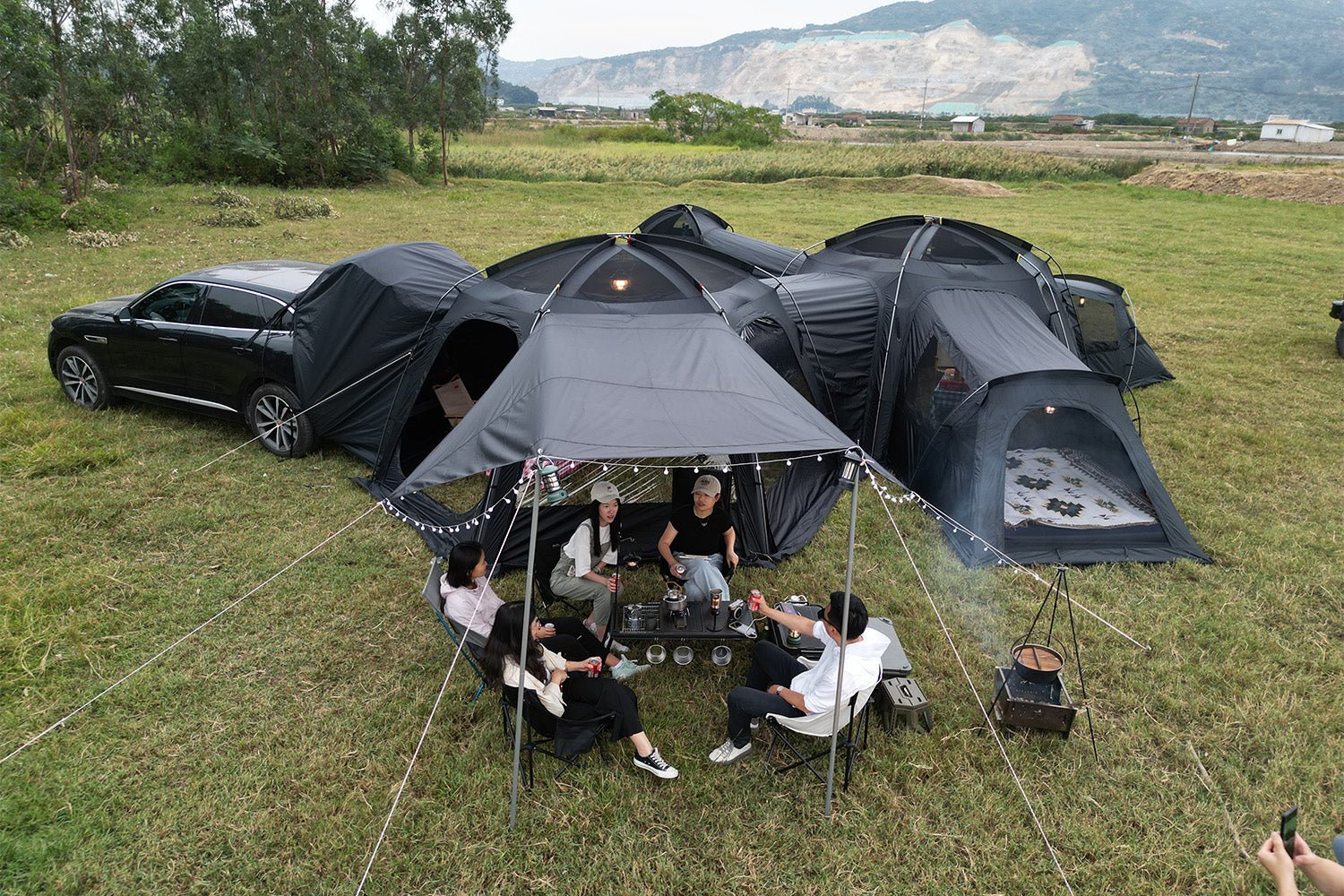The Basics of Camping Tents: Types and Uses
Understanding the Various Types of Camping Tents
There are several types of camping tents, each made for different uses. Dome tents are a popular option. They have a simple design and are easy to set up. Cabin tents offer more room and comfort, ideal for families. Backpacking tents are lightweight and compact. These are great for hikers on the go. Pop-up tents set up quickly, perfect for short trips. Rooftop tents attach to cars, providing a raised sleeping area. Each type has unique features suited for various camping experiences.

Selecting the Right Camping Tent for Your Needs
Selecting the right camping tent is key to a successful outdoor adventure. One must consider several factors to ensure a comfortable and secure experience. These include how many people it needs to house, the type of weather it should withstand, and the terrain it will be set upon. Here is a simple guide to help you choose the perfect tent for your needs:
- Consider the size: Ensure the tent can comfortably fit the number of campers.
- Look at weather resistance: Check for tents designed to handle the climate you'll be camping in.
- Assess the terrain adaptability: Some tents are better suited for rocky ground while others are ideal for soft soil.
- Portability matters: Opt for a tent that is manageable in weight and easy to carry.
- Setup ease: Choose a tent that you can set up swiftly, especially if you move camps often.
Remember that the best tent for you depends on your specific camping style and requirements. Taking the time to match your needs with the right tent features will greatly enhance your camping experience.
Advanced Features of Camping Tents in the US Market
Material and Durability Considerations
When choosing a camping tent, material and durability are key. Tents made from robust materials like ripstop nylon or polyester offer longer lifespans. These fabrics resist wear and tear from harsh weather and rough terrain. They also provide better waterproofing. Look for tents with reinforced seams and corners for added strength. Aluminum or carbon fiber poles are sturdy yet lightweight, an ideal combination for campers. A UV-resistant coating helps protect your tent from sun damage. Always check the denier rating—the higher, the tougher the fabric. These features ensure your shelter stands up to the rigors of outdoor adventures.
The Role of Technology in Camping Tents
The modern camping experience is shaped by technology. Tents now feature advanced materials that adapt to various climates. They also include built-in electronics. Think of solar-powered lights and charging stations. Smart design allows for easier setup and breakdown. Ventilation systems are more sophisticated too. They maintain comfortable airflow. Some tents even connect with apps. This lets campers control features from their phones. Technology in camping tents adds comfort and convenience to outdoor adventures.
Choosing Your Camping Tent: Factors to Consider
Assessing the Cost vs. Lifespan of Camping Tents
When picking a camping tent, cost and lifespan are key. Durability often ties to price. Yet pricier tents can last longer, paying off over time. Consider the material and brand reputation. Look at warranties offered, as well. A tent's life also depends on how you care for it. Hence, weigh initial costs against the usage and care you'll provide. This helps decide if a high-end tent is worth the investment.
Importance of Tent Design and Portability
When picking a tent, consider its design and ease of carrying. Tents come in shapes such as dome, tunnel, and cabin. Each shape has pros and cons for space and stability. Weight matters for backpackers. Light tents make hikes easier. Bulky tents work for car camping. Check if the tent packs small too. This helps when space is tight. For solo trips, a basic one-person tent is best. Group camping needs larger tents with room to move around. Some tents have wheels for easy transport. This can be helpful for family camping. The design should suit your trip type. Make sure the tent's portability fits your outdoor plans.

